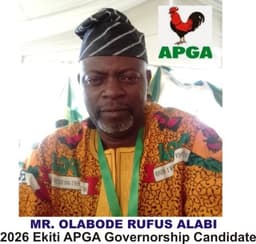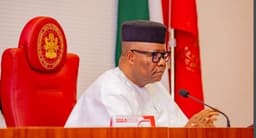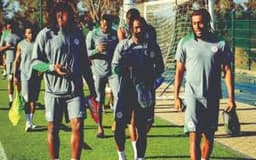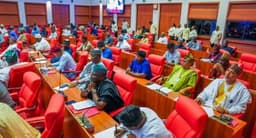
When Nigeria marked its 60th independence anniversary five years ago, I recalled how 1960 was deemed ‘The Year of Africa’. Because 16 of the 17 countries that gained independence that year were from the continent. I then x-rayed the state of those other 15 African countries that secured their independence same year with Nigeria: Niger Republic, Central African Republic (CAR), Somalia, Togo, Republic of Upper Volta (now Burkina Faso), Cameroon, Republic of the Congo or Congo-Brazzaville, Democratic Republic of the Congo (DRC), formerly known as Zaire, Cote D’Ivoire, Gabon, Madagascar, Mali, Mauritania, Senegal and Benin Republic.
In his national broadcast to mark our 65th independence anniversary yesterday, President Bola Tinubu reminded us of where Nigeria is coming from. “We fought a bitter and avoidable civil war, experienced military dictatorships, and lived through major political crises,” he said. Since almost all these other African countries have experienced a similar history of colonial subjugation, military incursions and security challenges, including insurgency and civil wars, etc., I made the point in 2020 that there are excuses to make for our failures.
However, I also contrasted the 16 African countries with the last of the nations in the ‘Class of 1960’—the only one outside the continent: The Republic of Cyprus, an Eastern Mediterranean Island country. Instructively, Cyprus and Nigeria share the same 1st October Independence Day, and the country also marked its 65th anniversary yesterday. Like Nigeria, Cyprus has faced wars, military coups and all manner of disruptions, instigated from within and without. But unlike Nigeria, Cyprus has done relatively well for itself. Today, the GDP per capita in Cyprus is projected to be $41,130 with a Purchasing Power Parity of $65,090 per capita, according to the International Monetary Fund (IMF) April 2025 World Economic Outlook data. Going by the same IMF data, the 2025 GDP per capita of Nigeria is a paltry $806.84! In almost all the indicators I have looked at, except for population growth—which speaks to our irresponsible procreation—Cyprus has fared far much better than Nigeria.
Of course, we can debate why and how Nigeria has fared so dismally despite enormous potential. But the real paradox is that while we may not be doing well as a country, many Nigerians are doing well as individuals. Both at home and in the Diaspora. The elephant in the room is leadership at practically all levels and in all spheres, but that is not even my point today. Despite being blessed with abundant human and material resources, we have failed to aggregate the parts into the collective whole, essentially because the accumulation of individual greed far outweighs the collective need. And we are still waiting on God’s help “to build a nation where no man is oppressed.”
As I once wrote on this page, nothing perhaps best illustrates the Nigerian condition than the embedded message in ‘The Ones Who Walk Away from Omelas’ which is regarded as one of the best works of literature regarding ethics and society. Published in 1974 by Ursula K. Le Guin in her collection, ‘The Wind’s Twelve Quarters’, the short story is about a beautifully constructed utopian society called Omelas where the prosperity of the people came at the expense of one deprived child locked in a dingy small room. At the coming of age, every citizen of Omelas is confronted with the condition of the child and no matter how well the matter was explained to them, “these young spectators are always shocked and sickened at the sight. They feel disgust, which they had thought themselves superior to. They feel anger, outrage, impotence, despite all the explanations…Yet it is their tears and anger, the trying of their generosity and the acceptance of their helplessness, which are perhaps the true source of the splendour of their lives….”
A major theme in this story, popular in leadership courses, is morality and how different people within a given society react to situations around them. While the citizens of Omelas were quite aware of the child’s deplorable condition, they did nothing. Apparently because their happiness was dependent on his deprivation. Omelas is a good metaphor for Nigeria: To every dysfunction, there are beneficiaries. Unfortunately, that is the tragedy that has bedevilled our nation repeatedly over six and a half decades.
Even though Nigeria retains all the apparatus of a functioning state, it is obvious that the system has been rigged against most of the people. The real tragedy is that Nigerians have perfected the art of detaching themselves from the nation as a shared patrimony. In what has become a culture of self-flagellation, the standard refrain is: ‘Nigeria is a useless country’. In a nation where everybody is pointing fingers and no one accepts responsibility for our failings; it is difficult to engage one another in any meaningful conversation on the way forward.
For us to develop as a society, we must come to that special place where both the government and the people meet in an honest admission of shared responsibility for lost opportunities and the challenge of national retrieval. This convergence requires responsible leadership and patriotic citizenship. But if all we can do is to mouth the self-indicting and hypocritical prayer of ‘may Nigeria not happen to you’, we are not going to build a society that works for all citizens.
Therefore, at 65 years of nationhood, we should spare a thought for our country by stopping to blame ‘Nigeria’ for our self-inflicted woes.
Amala and Gbegiri to the Rescue
With me, Malaria has never been anything to take seriously. Once there is Aboniki balm (stronger than Rub), hot water and a bucket, I am good. For the uninitiated, here is the ‘prescription’: You mix the balm with hot water inside a bucket, and you cover your head with a duvet. The steam you inhale is more potent than Chloroquine. Well, that has always served me until the last bout with Malaria that refused to submit to the ‘Aboniki treatment’. Although I ended up going to the hospital for proper testing and took the prescribed drugs, I was unwell for almost a month. The worst aspect was that I lost my appetite for food. In the process of forcing myself to eat, I would send the driver out to buy whatever food that took my fancy. But it never worked. Until one day!
I called Malik at the Shehu Musa Yar’Adua Centre and asked him to buy for me ‘Amala’ from ‘Iya Oyo’ in Wuye. I didn’t have to tell Malik about ‘Ewedu’ and ‘Gbegiri’ plus plenty of ‘Ponmo’. He knew that already. To cut the story short, for the first time in almost a week, I enjoyed food! And from that moment for the next two weeks, it was ‘Amala’ from ‘Iya Oyo’ every day, until my appetite for food returned. Incidentally, before I fell ill, there was an exchange on X (formerly Twitter) on ‘Amala’. It started when someone posted: “The highly regarded ‘best amala in Lagos’ is tucked away in a tiny spot on an obscure street in Onipanu. My driver and I nearly got lost trying to find it. Got there and saw different types of cars parked in front of this tiny shop just to have some amala. Las las you can do great things from a small place.”
What followed were interesting insights into the various ‘amala joints’ in Lagos by people one would not ordinarily associate with ‘amala’. One guy with the moniker, ‘Your boy Armani’ wrote: “That small place contributes significantly to the aura of that Amala. It won’t be the same anywhere else.” To Hussein Doki Waka, “Entrepreneurs need to realise that the moment you try to modernise an amala joint, it automatically translates to a loss of taste.” Juwon Logistics wagered that ‘Momo Toyin in Onipanu’ and others must be exhibiting what he described as ‘attitude’ before adding, “The more the attitude, the sweeter the amala.”
I found the conversation very insightful, and it got me thinking during my illness, especially after the ‘amala’ from ‘Iya Oyo’ performed the magic on my appetite. What is remarkable about places like this ‘amala spot’ in Onipanu, according to Regina Alachi, a young mentee at the Centre with whom I had an interesting exchange on the issue, is that their refusal to scale is not a business limitation, it is their greatest strategic advantage. As she argued, the owner likely understands something that many entrepreneurs miss: exclusivity creates demand, and scarcity breed desire. I agree with Alachi, who leads the Social Justice and Equity Programme at the Yar’Adua Foundation. When the high and mighty of our society must navigate obscure streets and hunt for parking space for their vehicles just to eat ‘amala’, that experience also becomes part of the product. The inconvenience itself signals authenticity and quality in a way that a gleaming chain restaurant never could.
But it is also true that these ‘amala’ establishments often face what we can call the ‘generational authenticity trap.’ The magic usually lies in the founder’s hands, palate, and relationships. Unlike businesses that can be franchised, the ‘best amala’ in any town probably exists because of one person’s specific technique, ingredient sourcing, or even personality. Succession planning becomes nearly impossible because you cannot systematize intuition or replicate decades of relationship-building. The next generation either lacks the passion for the gruelling work, or they have bigger ambitions.
What is brilliant about this model of ‘amala’ restaurants is how it inverts traditional power structures. Instead of the business chasing customers, powerful people chase the product. Politicians, celebrities, and business moguls become supplicants, waiting in line like everyone else. This creates immense social currency while being “in the know” about such places becomes a mark of authenticity and local credibility. The owner likely doesn’t need to leverage this clientele for expansion because the clientele themselves becomes the marketing engine, and their patronage alone probably generates enough revenue from this single location.
At the end, the beauty is in the restraint, knowing that bigger isn’t always better, and that sometimes the most powerful business strategy is simply being irreplaceably good at one thing in one place. Now, can someone get me a plate of ‘Amala’ from ‘Iya Oyo’ in Wuye? (THIS DAY)



























NEWS EXPRESS is Nigeria’s leading online newspaper. Published by Africa’s international award-winning journalist, Mr. Isaac Umunna, NEWS EXPRESS is Nigeria’s first truly professional online daily newspaper. It is published from Lagos, Nigeria’s economic and media hub, and has a provision for occasional special print editions. Thanks to our vast network of sources and dedicated team of professional journalists and contributors spread across Nigeria and overseas, NEWS EXPRESS has become synonymous with newsbreaks and exclusive stories from around the world.